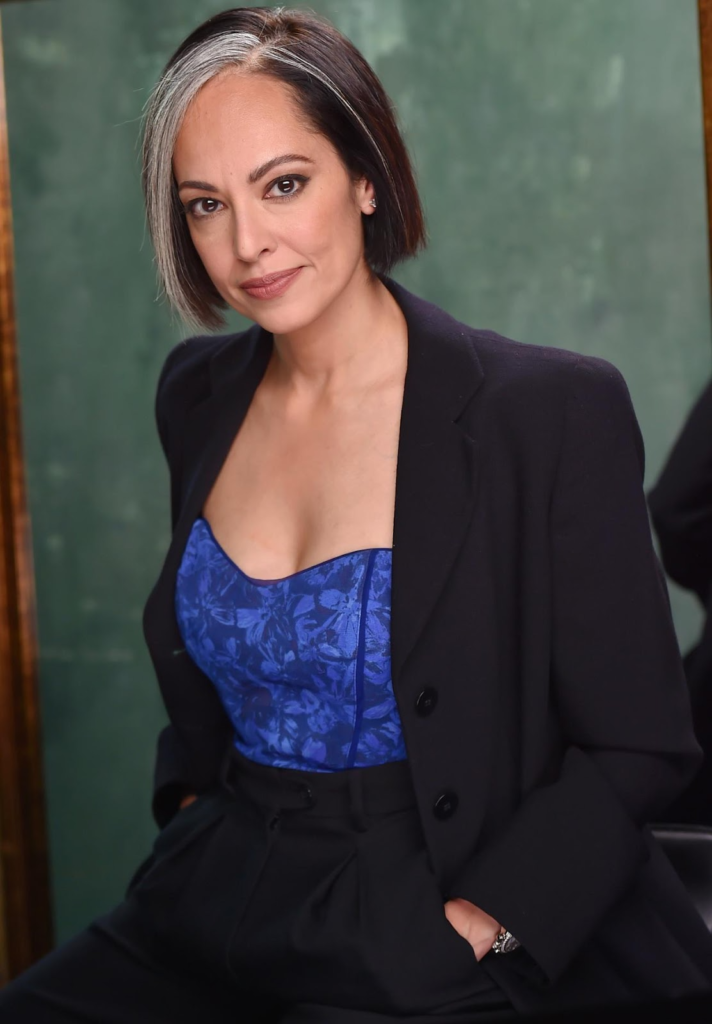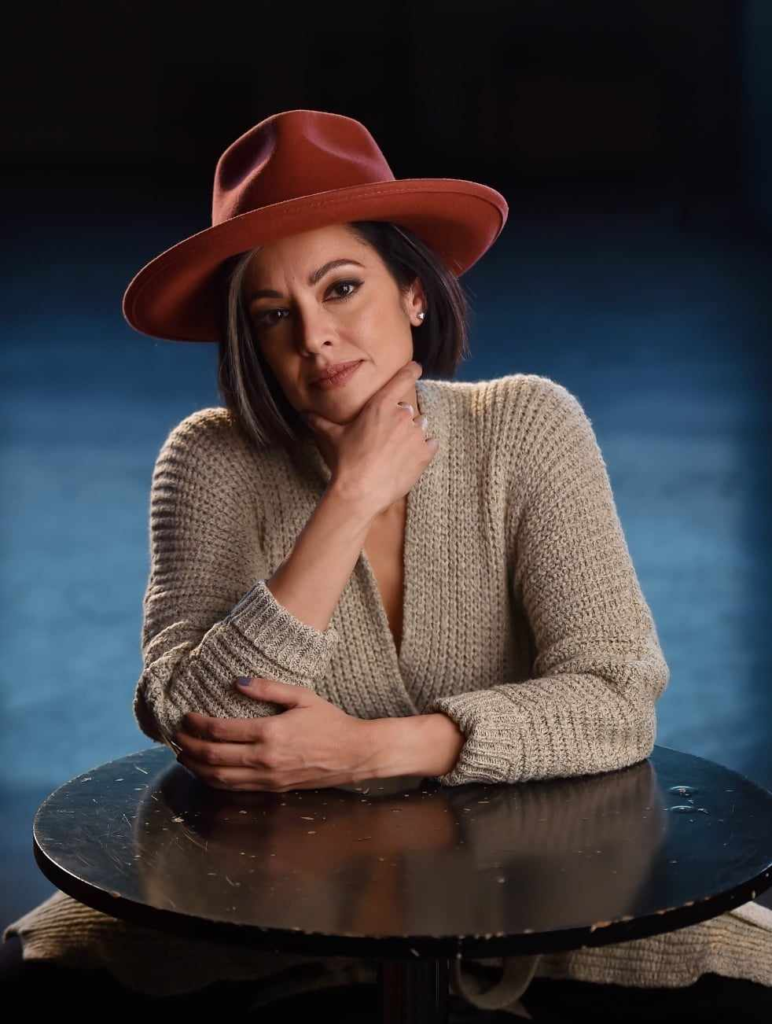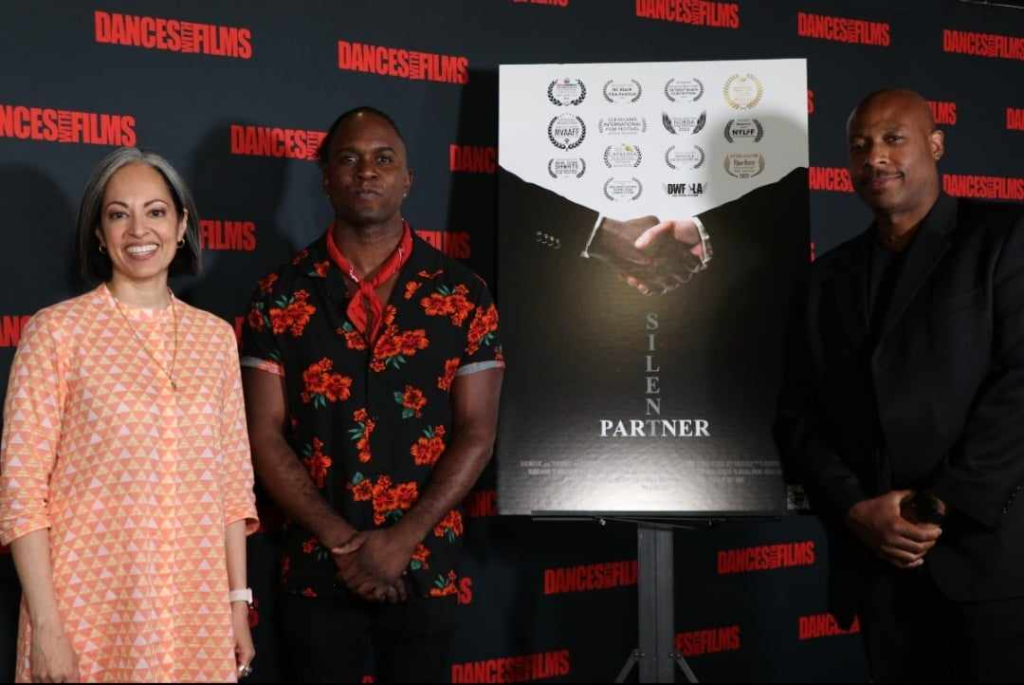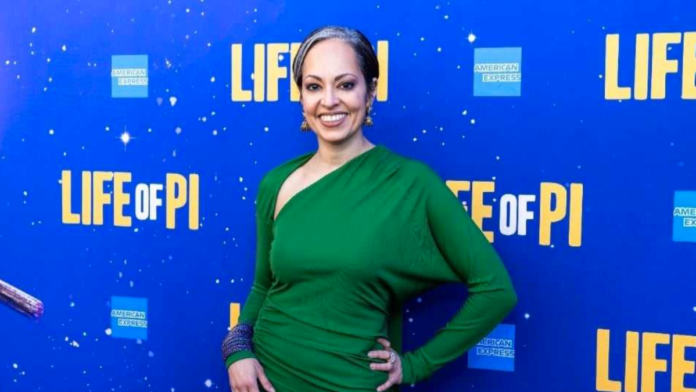( ENSPIRE Entertainment ) Salma Qarnain Talks About Her Broadway Experience in Life of Pi
ENSPIRE Contributor: Gabrielle Maya
Salma Qarnain is a triple threat excelling in business, science, and entertainment. She is an award-winning Pakistani actress and producer a rocket scientist and co-founder of an entertainment business called Black Man Films. Qarnain is an Ivy League scholar with degrees from Standford, MIT, and Harvard. Along with this astounding educational background, she could integrate these talents into the TV/Film industry.
With twenty years in the entertainment industry, she became a Helen Hayes Award recipient, an AUDELCO nominee, and found roles with major networks: CBS, ABC, NBC, HBO, HBO Max, Hulu, and also on off-Broadway productions.

Salma Qarnain’s concern is that Hollywood’s history consists of ignoring and overlooking South Asian and Muslim talent except for stereotypical roles. One of Qarain’s recent roles on Broadway was for the major Broadway stage play “Life of Pi” which began in Spring on March 9th. She played a South Asian character, Mrs. Biology-Kumar, but also a Muslim cleric named Zaida Khan.
“There is a huge amount of bias and racism in Pakistan and South Asia about color. The darker you are the less attractive you are considered, and you won’t be given the same opportunities,” Qarnain says. Also, my older sister’s husband is Black, and her kids are Black. The thought of my niece and nephew not getting the opportunities they deserve makes me angry.”
Salma Qarnain and her partner and fellow actor Roderick Lawrence created Black Man Films to improve the authentic representation of Black people and South Asians in Hollywood. They produce films centered on the Black American experience, merging art with activism to spark important conversations that are not typically discussed in Hollywood. In addition, they focus on collaborating with the best Black and Brown talent both in front and behind the camera.
ENSPIRE has a chance to talk with Salma Qarnain about her degrees and how they benefit the entertainment industry, her acting career and the start of Black Man Films, the highs and lows of the TV/Film industry, and what we can do to be more inclusive and more!
How do you use your science and business degrees with your entertainment industry experience?
My experiences in engineering and business taught me transferable problem-solving and program management skills, which I now actively use as a producer at Black Man Films. Additionally, the MBA has given me the ability to delve into the business side of the industry to significantly contribute to the growth of our company. Not only do I think from a strategic perspective with my co-founder Roderick Lawrence, but I also am able tocan execute the strategy and manage our accounting/budgeting, contract negotiations, and marketing.
When did you start your acting career and how has Black Man Films paved the way for inclusivity for Black and South Asian actors?
I began acting professionally in 2003. There has been movement in the last 20 years towards diversity in casting. However, diversity does not mean inclusivity, especially when it comes to having the opportunity to audition for leading roles or roles outside of my perceived ethnicity. There has been a lot of tokenism that still exists today.
For example, when I first moved to NYC, I was primarily given opportunities to audition for roles that required a dialect or different language. However, that has changed over time as casting directors have gotten to know me. Still, my Broadway debut was this year in a South Asian-focused play (“Life of Pi”) in which 17 of us made our Broadway debuts (can you guess the ethnicity of the majority of those debuts?).
I do think that there are now more creators and writers of color, and as a result, there is more work than ever before that centers people of color in stories. Black Man Films’ mission is to tell those stories and give Black and Brown actors the opportunities to play the protagonists / central characters, and we couldn’t be happier to support that as part of our mission.
What would you say the Hollywood industry should do differently to be more inclusive in casting and directing TV/Film?
Start at the top in terms of who makes the decisions and decides on what is shown at the studios and networks. Those decision-makers at the studios and networks must make inclusive storytelling a priority, because not only does it need to shift with the changing demographics, but it is also profitable (for example Bridgerton).
Organizations tend to replicate what they’ve done in the past and have built systems over time to support that organizational design and culture. It takes a lot to overcome that inertia — changing a culture is a very long game, unless there is something that will disrupt the existing dynamics within the organization.
But it can’t be a fad. It has to start with a top-down mandate that then permeates through the organization and becomes a core value within the company culture that is visible and integrated into all processes: from hiring to talent development and performance appraisals.
As independent filmmakers, we have the power to set the culture, tone, and systems from scratch on our projects. I believe that this is where more inclusive casting and directing lies today.

Describe the highs and lows in the TV/Film industry and what work ethic you have to bring relevant content to the screens.
I would describe my work ethic as both relentless and optimistic. In this industry, rejection is commonplace, and it’s essential to persevere when you believe in your vision and work. Nevertheless, you have to find comfort in facing rejection — you can’t (and shouldn’t) please everyone, especially when you are telling stories that push boundaries and drive meaningful conversations.
You need to understand for whom you are creating the film and with whom the film would resonate to gain traction in every area from raising funds to seeking distribution to screening at festivals.
If you are starting from scratch, which we were as filmmakers, you have to rely on your ability to learn quickly and seek out collaborators who are experts in areas in which you are not as strong and from whom you can learn. Then you do it better on the next project. You can’t give up or give in to fear; I constantly remind myself that I have to play to win, not protect myself from loss.
What were the values that you and Roderick Lawrence shared to create Black Man Films, and what is the overall future of this business?
- Focus on making the best work possible with whatever resources are available to us — never sacrificing story or quality of filmmaking
- Be authentic in storytelling and shepherd the vision
- Hire people who are also aligned in shepherding the vision and are collaborative
- Ensure that Black and Brown artists and women are considered first for all positions, in front of and behind the camera
- Develop/nurture Black and Brown creatives who would not otherwise have the opportunity in the industry
- Treat everyone as a collaborator and be open to learning from all; this also requires creating an environment in which people feel heard and seen, such that they bring their best work to elevate the project
- Communicate openly and transparently with each other and our team
You have recently won the Grand Jury Prize at Dances with Films: LA and Best Narrative Short at the Morehouse College Human Rights Film Festival for your film Speak Up Brotha! How does it feel for your company’s work to be respected and honored this way?
We’ve won or been nominated at 5 of the 9 festivals that we’ve been to to date, and we just were accepted into our 5th Oscar-qualifying festival. While we didn’t create Speak Up Brotha! to win awards, awards bring credibility and visibility to our work within different communities and stakeholders.
As an example, winning the Grand Jury Prize at Dances with Films: LA allowed us to make connections with industry executives, production companies, and distributors that we would have not otherwise met. This exposure is invaluable because we are now in the fortunate position to be able to pitch our current feature film, Silent Partner, which we will shoot in December as well as other films in our growing slate to these stakeholders.

Qarnain and Roderick Lawrence at Black Man Films led the film Silent Partner which was accepted to 19 film festivals. Silent Partner received 8 awards and nominations and became an Oscar qualifier. Their latest film “Speak Up Brotha!” is doing the same and recently they won the Grand Jury Prize at Dance With Films: LA
“I want to help change the narrative and do something about the way people are treated in this country – not as “other” but as humans and Americans. I feel like by helping Black men and women to rise, it helps lift Pakistani American men and women in turn.”
Qarnain recognizes the history of Black people in America and believes South Asians can learn from the community and add perspective to the challenges South Asians face. For more information and updates on Salma Qarnain, visit http://www.salmaqarnain.com/ and follow her on Instagram. Want to see “Life of Pi” on Broadway, visit their page.
Related Articles: Gabrieline Reece, An Entrepreneur with a Gift for Filmmaking, Impact of the 2023 Windrush Caribbean Film Festival







